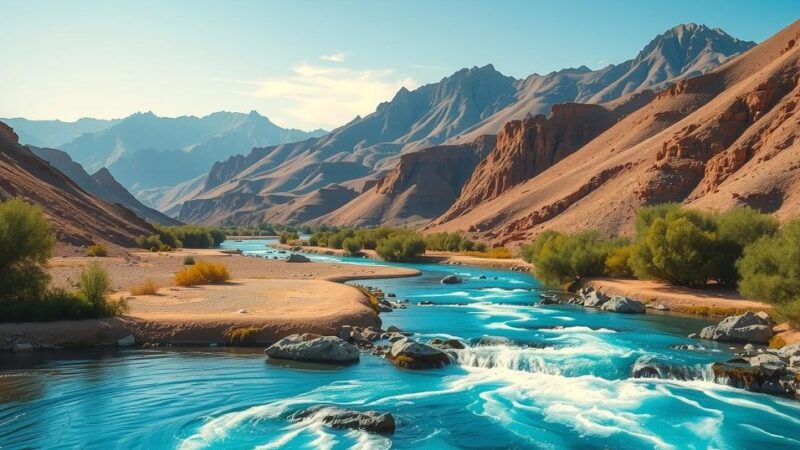Peruvian farmer Saúl Luciano Lliuya has filed a lawsuit against RWE in Germany, arguing the company’s historical greenhouse gas emissions contribute to dangerous glacial melt and flooding risks in his hometown of Huaraz, Peru. The case could set a precedent in climate accountability, though RWE disputes legal responsibility. Expert assessments are being conducted as the trial unfolds.
A crucial climate lawsuit is set to commence in Germany next week, initiated by Peruvian farmer Saúl Luciano Lliuya against the German energy company RWE. This case has the potential to establish a significant precedent in holding major polluters accountable for climate change. Lliuya contends that RWE’s historical greenhouse gas emissions have exacerbated global warming, particularly affecting glacial melt in his hometown of Huaraz, Peru.
The state court in Hamm, Germany, is now hearing Lliuya’s assertion that RWE’s emissions have contributed to rising water levels in Lake Palcacocha, threatening his community with catastrophic flooding. Although RWE denies any legal responsibility, arguing that climate change is a multifaceted global issue, Lliuya maintains that individual companies must be held accountable for their contributions.
Speaking to the media outside the courtroom, Lliuya emphasized the importance of glaciers for life and water, noting, “the glaciers are melting, are disappearing bit by bit. Some lakes… it’s a risk to me, to more than 50,000 people who live in the zone at risk.” Lliuya expressed hope for the trial outcome, stating, “We have waited 10 years for this day, this decisive day.”
Roda Verheyen, Lliuya’s lead lawyer, expressed a cautious optimism, asserting that immediate action is required due to the ongoing glacial melt. She highlighted RWE’s status as one of Europe’s largest CO2 emitters, viewing this case as a critical step toward tackling climate change through judicial means. RWE, however, contends that the lawsuit could set a concerning legal precedent and insists climate solutions should emerge through political platforms rather than litigation.
German judges and experts visited Peru in 2022 to examine the potential risks posed by climate change to Lliuya’s residence. Discussions surrounding expert reports are anticipated during the court proceedings. It remains uncertain whether a judgment will be rendered during this week’s hearings.
In summary, the lawsuit brought forth by Peruvian farmer Saúl Luciano Lliuya against RWE marks a pivotal moment in climate litigation. The case raises significant questions about corporate accountability in relation to climate change and serves as a potential precedent for future legal actions against major polluters. As courts assess the implications of such lawsuits, the outcomes may influence global perspectives on climate responsibility and the role of legal frameworks in addressing environmental crises.
Original Source: apnews.com






